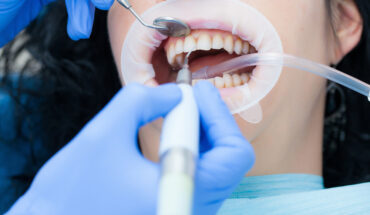
Tooth decay remains one of the most common chronic conditions affecting children worldwide. Despite being preventable, cavities in kids can lead to discomfort, missed school days, and costly treatments if left unchecked. Understanding the early signs, underlying causes, and effective prevention strategies is key to ensuring a healthy, happy smile for your child. With the help of a trusted pediatric dentist and proactive parental involvement, dental decay doesn’t have to be part of your child’s life.
Understanding Cavities in Children
A cavity, or dental caries, occurs when the enamel of the tooth becomes damaged due to acids produced by bacteria. In children, cavities tend to develop quickly due to their thinner enamel and higher consumption of sugary snacks or drinks. Since baby teeth are critical for speech development, chewing, and holding space for permanent teeth, their health must be taken seriously.
Pediatric dentists—dentists who specialize in treating children’s oral health—are trained to detect cavities in their earliest stages and recommend age-appropriate treatment plans. These professionals are a cornerstone of special care dentistry, which emphasizes individualized, gentle care, especially for children who may be anxious or have special needs.
Early Signs of Cavities in Kids
Spotting the early signs of cavities can lead to timely intervention and minimal damage. Here are some indicators to watch for:
- White Spots: These chalky marks on the surface of teeth are often the first sign of enamel demineralization.
- Sensitivity to Hot, Cold, or Sweet Foods: If your child complains about discomfort while eating, a cavity might be forming.
- Discoloration: Brown or black spots could be an indication of advanced decay.
- Persistent Bad Breath: Despite brushing, a lingering bad odor may signal bacterial activity in a decayed tooth.
- Toothache: Unexplained pain, especially while eating, is a more obvious symptom that a cavity might be present.
Children may not always communicate these symptoms clearly, so regular dental checkups with a pediatric dentist are essential in detecting and treating problems early.
Causes of Cavities in Children
While sugary snacks often take the blame, several factors contribute to the development of cavities in young children:
1. Frequent Snacking and Sugary Drinks: Constant exposure to sugar fuels bacteria in the mouth, which produce acids that wear down tooth enamel.
2. Poor Oral Hygiene: Inadequate brushing or flossing leads to plaque buildup, increasing the risk of decay.
3. Bottle Feeding at Bedtime: Known as baby bottle tooth decay, this happens when milk or juice sits on the teeth overnight.
4. Genetics and Enamel Quality: Some children may be more prone to decay due to thinner enamel or inherited dental traits.
5. Dry Mouth: Reduced saliva flow can decrease the mouth’s ability to neutralize acids and wash away food particles.
6. Lack of Regular Dental Visits: Without consistent checkups, emerging dental issues may go unnoticed until they become severe.
Prevention Strategies That Work
Preventing cavities in children requires a combined effort from parents, caregivers, and dental professionals. Here are some effective strategies recommended by pediatric dentists and supported by special care dentistry principles:
1. Start Oral Care Early
Begin cleaning your baby’s gums with a soft, damp cloth before the first tooth erupts. As soon as teeth appear, use a child-sized toothbrush and fluoride toothpaste appropriate for their age.
2. Establish a Consistent Routine
Teach children to brush twice a day and floss once a day. Supervise brushing until they can do it effectively on their own, typically around age 7 or 8.
3. Limit Sugar and Sticky Foods
Offer nutritious snacks like fruits, vegetables, and cheese. Avoid frequent snacking, especially on candies, juice, or soda, which prolong acid attacks on the teeth.
4. Schedule Regular Dental Visits
Visit a pediatric dentist every six months for exams and professional cleanings. These visits can identify issues early and reinforce good oral habits.
5. Consider Sealants and Fluoride Treatments
Dental sealants are protective coatings applied to the chewing surfaces of molars, while fluoride treatments strengthen enamel. Both are commonly recommended in special care dentistry settings.
6. Encourage Water Drinking
Water helps rinse food particles from the mouth and promotes saliva production, which protects against decay. Fluoridated water, in particular, adds an extra layer of defense.
7. Educate Your Child
Use age-appropriate books, videos, or games to teach children the importance of oral hygiene. When kids understand why dental care matters, they’re more likely to participate willingly.
Special Considerations for Children with Unique Needs
Children with medical, developmental, or emotional challenges may require more tailored dental care. Special care dentistry ensures these children receive the attention, patience, and accommodations necessary to keep their teeth healthy. Whether it’s sensory sensitivities, mobility issues, or behavioral difficulties, pediatric dentists trained in special care can provide gentle, personalized support.
Cavities in kids may be common, but they are largely preventable with the right knowledge and consistent care. From recognizing the early signs to taking proactive steps at home and with a pediatric dentist, parents can safeguard their child’s oral health. By embracing the principles of special care dentistry, we can ensure that every child—regardless of age, ability, or background—has access to compassionate and effective dental care for a lifetime of healthy smiles.




